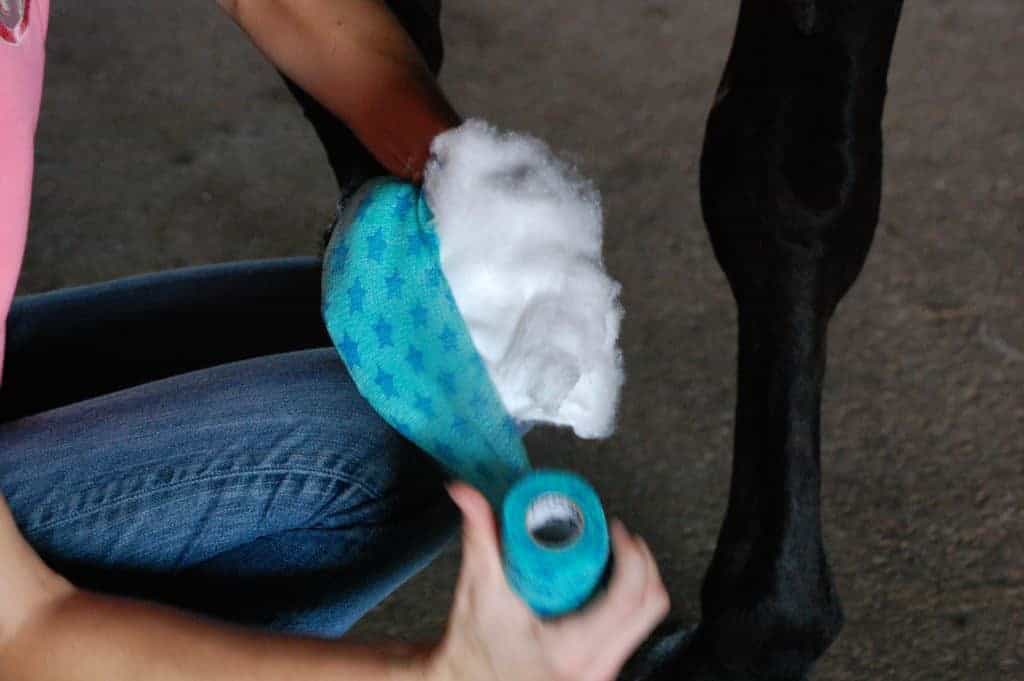Should I Wrap an Abscessed Hoof?
- Topics: Abscesses, Article, Hoof Care, Horse Care

Q. My horse recently had a deep abscess in her hoof and a friend advised me to keep the hoof wrapped for a bit to prevent bacteria from getting trapped into the hole as it heals. Is this a good practice? And how long should I keep her hoof wrapped?
—Via email
A. Abscesses are simply pressurized pockets of bacteria, fungi, or dying tissue that expand and travel along the path of least resistance in the foot. They’re frequently found in the epidermal layers of the wall, sole, or frog but can migrate along planes into dermal or deeper tissues when the path of least resistance drives them that direction.
The definition of a deep abscess may vary but implies that it traveled some distance from the sole or into those deeper tissues. Resolution to most abscesses revolves around decompression of the pocket and a thorough cleaning of the remaining tract. This is often done by using a hoof knife to locate the tract, followed by flushing of the tract with various antiseptics.
Sometimes the tract may be elusive, so poulticing or soaking the foot might aid in softening hard keratinized areas of the foot allowing it to mature. The reason one might leave a bandage for an extended period would be to prevent any new migration of foreign material back into the freshly cleaned tract, especially at the sole. The depth or size of the tract/pocket will determine the length of time you need to keep the foot bandaged. Generally, an abscess can be decompressed, poulticed, and bandaged for several days with resolution.
Some horses may require a shoe with a pad to keep the area covered for a longer period of time and, in each case, the horse needs to be stabled in a clean, dry environment.

Written by:
Britt Conklin, DVM
Related Articles
Stay on top of the most recent Horse Health news with















